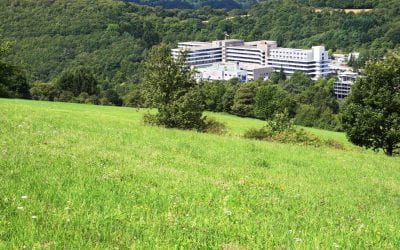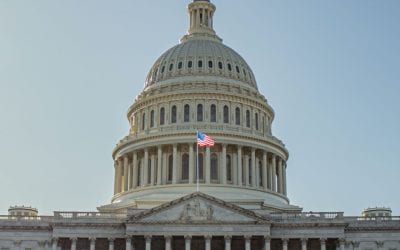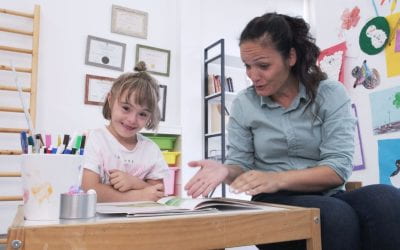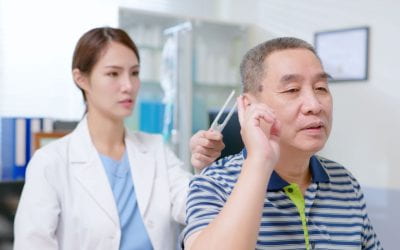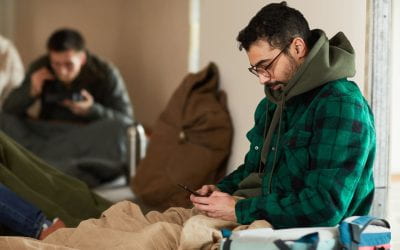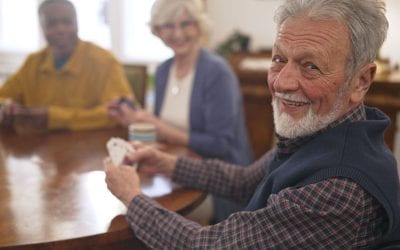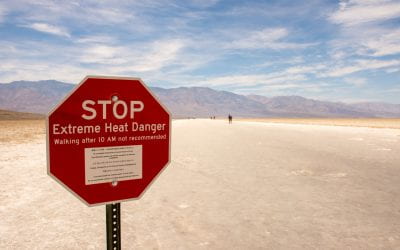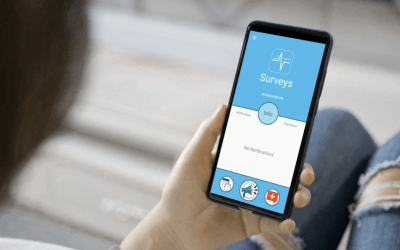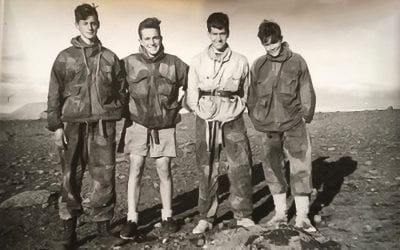Developing solutions to real-world problems
Featured Research

Combating Substance Misuse
Substance use poses many serious, well-known risks to people’s health, families, and communities. During the COVID-19 pandemic, economic stress, social isolation, and anxiety about the future may deepen the public health emergency posed by substance misuse and addiction.
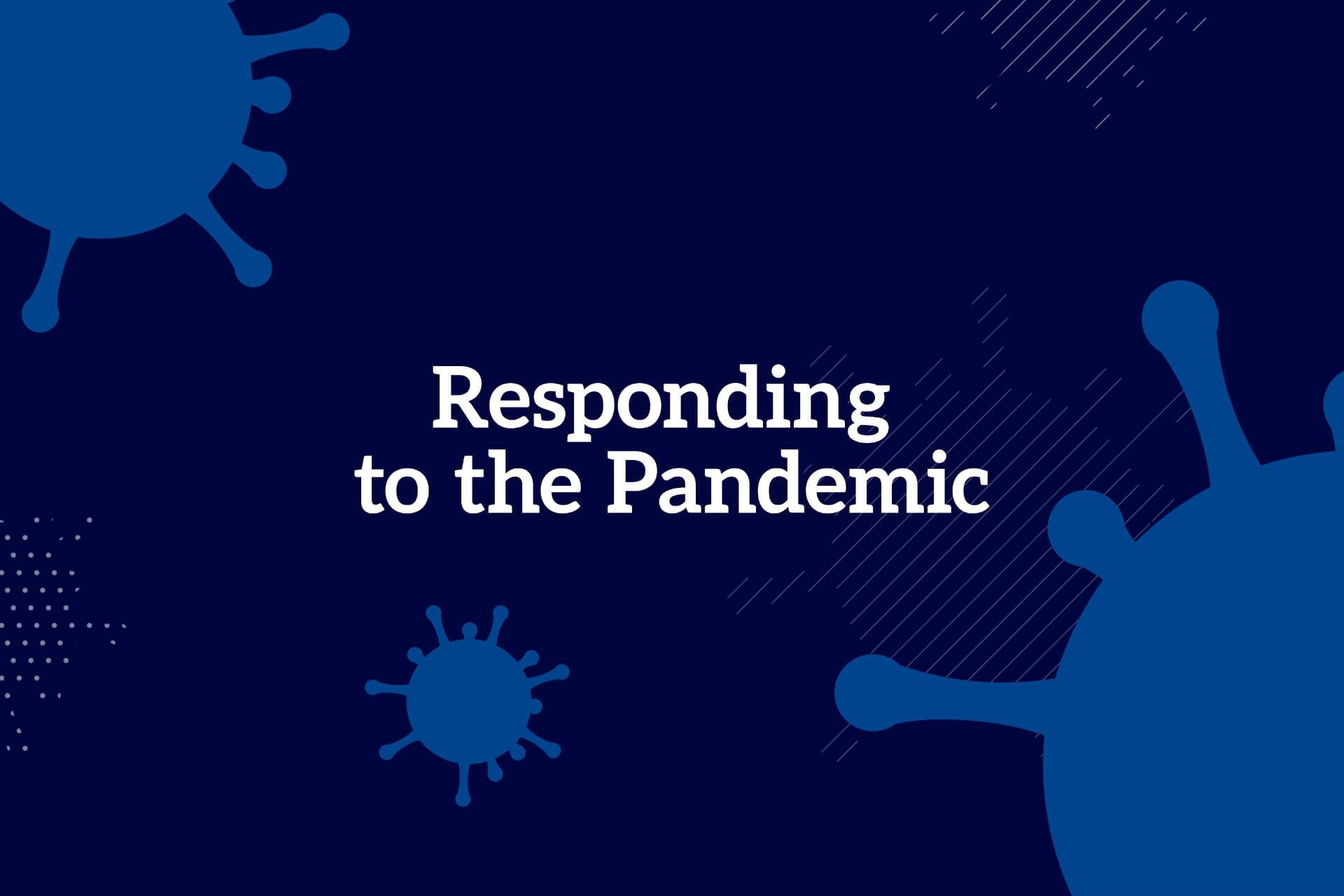
Responding to the Pandemic
Since the first stirrings of the COVID-19 pandemic in the early months of 2020, Americans have felt its affects in nearly every aspect of daily life: healthcare, education, employment or work environment, family dynamics, social interactions, and shopping and dining experiences.
Research Around the College
Masters’ students in rural hospitals: Providing assistance and receiving real-world education
The Pennsylvania Office of Rural Health places Penn State Master of Health Administration students in internships with hospitals and other health care providers across Pennsylvania. Students provide support and expertise to rural hospitals, and, in return, they receive a diverse set of real-world learning experiences.
Supporting Rural Hospitals
The Pennsylvania Office of Rural Health (PORH) helps to ensure that residents in rural communities have access to high-quality, affordable health care. A PORH collaboration with Penn Highlands Tyrone supported the hospital as it made improvements that benefited its patients and local community.
Fighting the Epidemic
As Pennsylvania has responded to the opioid crisis, Dennis Scanlon, director of the Center for Health Care and Policy Research and Distinguished Professor of Health Policy and Administration, has worked with the Commonwealth to quantify the harms of the epidemic and help plan the state’s response.
From Four Diamonds child to dancer
Tucker Haas was diagnosed with an aggressive form of sarcoma when he was just two years old. He became involved with Penn State as a Four Diamonds child when he was undergoing treatment, which began a 20-year journey with Penn State THON and the fraternity that became his adoptive family.
A Legacy of Service
Penn State’s Speech, Language and Hearing Clinic has been serving Pennsylvanians with communication and audiological needs for more than nine decades. The clinic provides central Pennsylvania and the entire Commonwealth with unique and important services that help people communicate and, ultimately, build connections with others.
Supporting Hearing and Speech Development and Recovery
The Speech, Language, and Hearing Clinic serves a broad range of people with communication concerns, including screenings and therapy for children, support for people with Parkinson’s disease and aphasia due to stroke or other health problems, and therapy for people whose voice is changing due to aging.
Healthy eating, healthy behavior, healthy children
Childhood obesity affects one in six American children. Penn State’s Center for Childhood Obesity Research partners with Head Start programs to help children learn to regulate their eating behavior.
Bridging the gap to end systemic homelessness in the U.S.
Students enrolled in Kines 497 traveled to Los Angeles, California, to shadow the University of Southern California Street Medicine program providing health care to unhoused individuals.
The three-legged stool: service, education, and research
The Speech, Language, and Hearing Clinic has always served the community, but it also contributes to Penn State’s research and educational missions. The research and education conducted through the clinic have, in turn, improved the services available to the public.
Join the Penn State Alumni Association
Join the Pride and become part of the largest, most impactful alumni association in the world. Alumni Association members receive 30-plus benefits and provide opportunities for the next generation of Penn Staters.
Supporting underrepresented entrepreneurs to uplift individuals and the economy
Women and entrepreneurs of color have lower access to capital than other entrepreneurs. Penn State researchers are collaborating with colleagues, nonprofits, entrepreneurs, and corporations to build a stronger economy and more equitable future.
Understanding abuse to aid recovery and protect children
In the last 10 years, Penn State has taken unprecedented steps to address child abuse and neglect through ground-breaking, interdisciplinary research. Penn State’s training, outreach, and research are making a difference across the nation.
Minor prepares students for entrepreneurial success
The Hospitality Management concentration of the Entrepreneurship and Innovation minor offers business and leadership training to students interested in entrepreneurial pursuits after graduation. The minor provides opportunities for students to connect with alumni working in the industry.
Placing technology in the hands of those who need it
Zita Oravecz and Tim Brick, associate professors of human development and family studies, plan to launch a company for their Wear-IT smartphone app, which measures emotional and physiological states in everyday life and can intervene when it is most needed.
How hot is too hot?
Once a person exceeds the temperature where their body can cool itself, they continue to heat up, which can cause health problems. As climate change makes extreme heat more common, researchers are studying temperature limits that people can tolerate.
Language, culture, and pesticides: how to protect farmworkers
Farmworkers in the United States are exposed to pesticides, machinery, and other potential hazards. Researchers are working to provide the protective equipment and the health literacy needed to improve farmworkers’ well-being.
Using artificial intelligence to evaluate newborn health
Much can be learned about the health of both a mother and her newborn by examining the placenta. Penn State faculty developed and patented software to evaluate a placenta with only a photograph, and they are working to improve and disseminate their innovation to people who need it.
In the Media: Understanding how humans meet their water needs
Asher Rosinger works to understand how humans meet their water needs and how this relates to health, the environment, and more. He has received extensive media coverage and professional recognition for this work.
